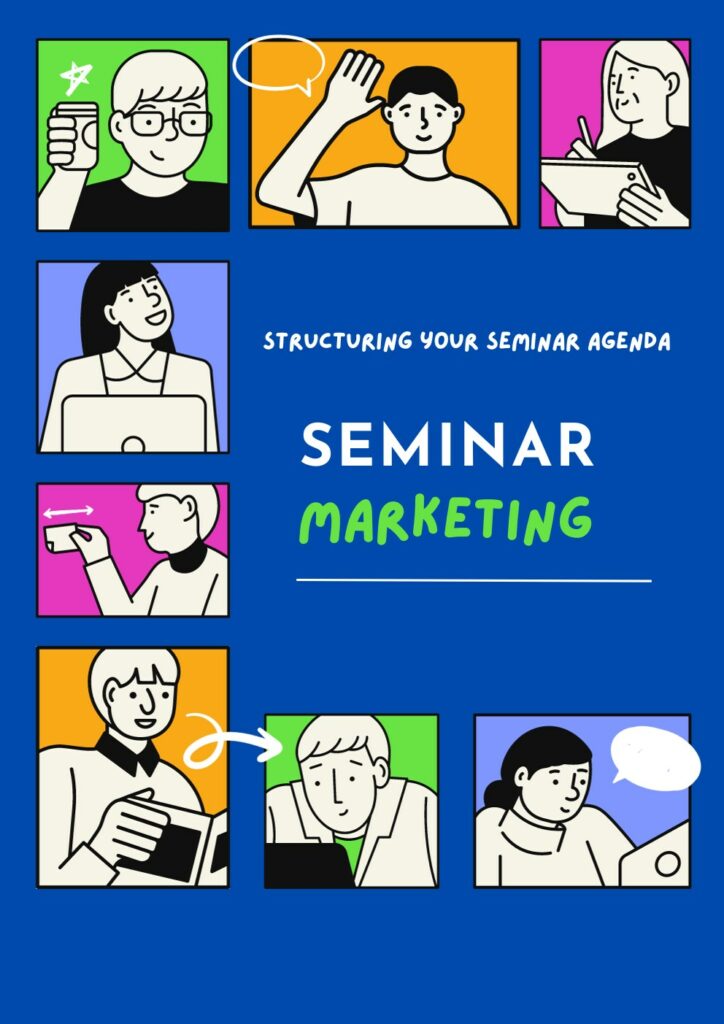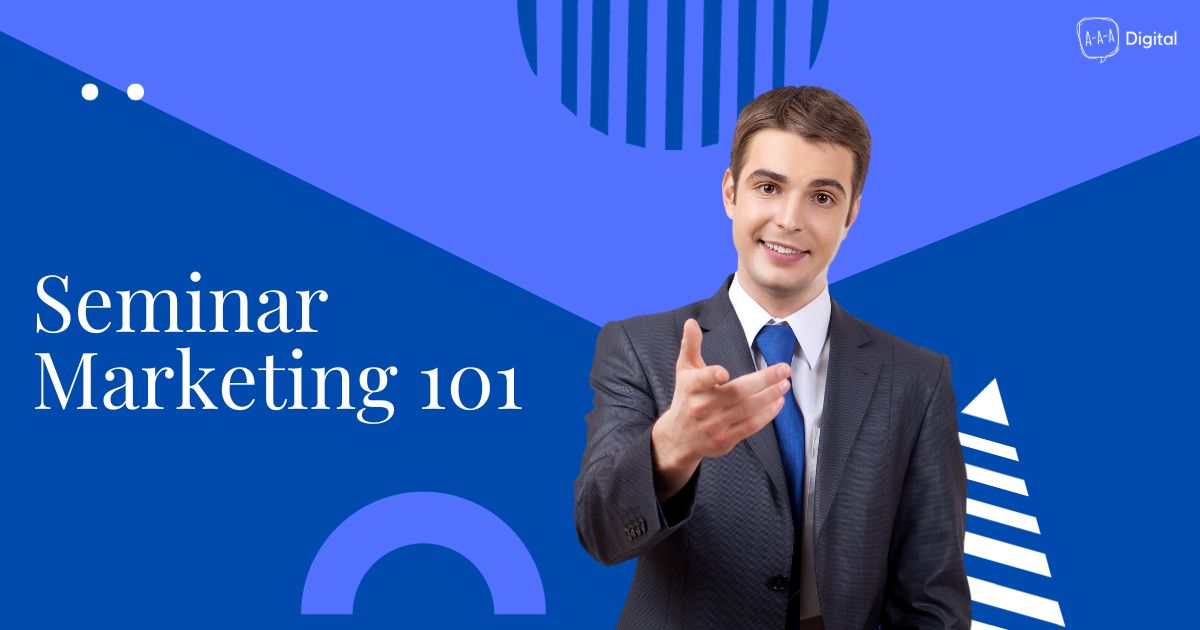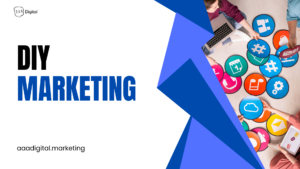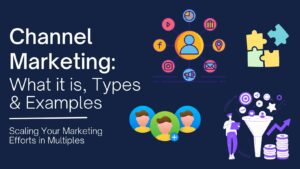Seminar marketing is a strategy used by businesses and organizations to promote their products, services, or expertise through educational or informational seminars or workshops.
The primary goal of seminar marketing is to attract a target audience, engage them in a live or virtual event, and provide valuable insights, knowledge, or solutions related to a specific topic or industry.
As a seasoned digital marketer, I have learned the ins and outs of running successful seminars & digital marketing over the years. From identifying the target audience to planning the agenda, every aspect requires thoughtful consideration and planning. In this article, I will share my top tips for marketing your seminars effectively.
What is Seminar Marketing?
Seminar marketing refers to the strategies and techniques used to promote and sell seats for a seminar event. It encompasses everything from choosing a compelling title and tagline to driving registrations through email campaigns and social media. The goal is to generate buzz and attract an engaged audience for the event.
By organizing a well-planned and executed effective seminar marketing plan, seminar providers can ensure their efforts are focused on developing business and maintaining their presence in the marketplace. This includes utilizing a combination of advertising, promotions, and public relations to create a successful marketing strategy that maximizes the potential for bookings and audience engagement.
Identifying the Target Group for Your Seminar
The first step is identifying who your ideal attendees are. Ask yourself – what specific group will benefit the most from my seminar content? Get clear on their demographics, interests, pain points and goals.
For coaching seminars, your audience likely includes coaches wanting to hone their skills, build credibility, network with peers or earn CE credits. Know their biggest challenges and craft messaging that shows how your event will help overcome them.
The Importance of Naming Your Seminar
An appealing seminar name and tagline can spike interest and signups. Aim for something descriptive yet catchy. For example, “The Coaching Confidence Workshop: How to Build an Authentic, Profitable Practice.”
Make sure the name speaks directly to the needs of your target group. In this example, the confidence and practice building elements address common coaching pain points.
How to Create an Effective Online Registration Form
An optimized online registration form removes friction from the signup process. Include fields for name, contact info, company, and any other must-have attendee details.
Offer an early bird rate to incentivize fast action. Make sure to highlight the unique value the seminar will provide. Add social proof elements like testimonials. And include engaging visuals like your event logo.
Structuring your Seminar Agenda

A well-structured agenda outlines the seminar flow and conveys the value attendees will gain. Consider these elements:
- Descriptive session titles that speak to takeaways
- A mix of educational content, activities, and networking
- Logical flow between segments
- Breaks every 1-2 hours
- Beginning and end times for each segment
- Leave buffer time for transitions and include sponsorship mentions if applicable.
Why is a Well-Planned Agenda Crucial?
An agenda acts like a roadmap for the event experience. It sets expectations, keeps things running smoothly, and allows attendees to maximize their time.
With a coaching seminar, a solid agenda reassures attendees they will walk away with specific, relevant strategies to elevate their practice. This builds excitement pre-event and satisfaction post-event.
How to Advertise your Seminar?
Advertising your seminar is crucial to attract the right audience and ensure its success. Some effective ways to advertise your seminar include creating a dedicated landing page on your website, promoting it through social media channels like LinkedIn, Facebook, and Twitter, using email marketing to reach out to potential attendees, and leveraging paid advertising channels like Google Ads or Facebook Ads. Additionally, partnering with industry influencers or thought leaders can help expand your reach and credibility. Don’t forget to highlight the benefits of attending your seminar and create a sense of urgency by promoting early bird discounts or limited-time offers.
Utilising Marketing Partners for Resource Pooling
Strategic partnerships with non-competing providers in your niche are a win-win. Cross-promote each other’s seminars in email blasts and social media. Share vendor booths to expand your exhibitor lineup. Co-host events that combine your complementary strengths.
Partnerships give you built-in promotional channels and help drive registrations. They also give attendees more value for their time and money.
How to Engage Clients during Seminar Marketing?
Current and past coaching clients make up a ready-made target audience. Engage them throughout your marketing process:
- Offer client-only early bird rates to incentivize signups
- Send personalized email invites highlighting how they’ll benefit
- Provide bonuses like extra resources or one-on-one Q&As for attending
- Feature client success stories in your seminar promotions
- Offer referral bonuses or discounts for bringing colleagues
This VIP treatment makes clients feel valued while turning them into brand advocates.
Leveraging Online Event Planning Websites for Seminar Marketing
Sites like Eventbrite, Meetup and Punchpass provide built-in promotion when you list your seminar. You can publish event details, sell tickets, manage RSVPs and accessattendee tools.
Make your listing robust with an engaging headline, benefit-focused bullet points and impactful visuals. Participate in site newsletters and social media communities to expand your reach.
These sites put your seminar in front of targeted niche audiences actively looking for relevant events. This amplifies the impact of your marketing.
The Role of Creativity in Successful Seminar Marketing
Think beyond basic flyers and emails. Employ creativity to craft compelling promotions that spark interest.
For example, produce a short teaser video highlighting your biggest seminar takeaways. Or design an infographic laying out statistics that make your content relevant.
Develop catchy seminar slogans and run a contest for free tickets. Innovation and originality help your marketing efforts stand out from the crowd.
Why is Follow-up Essential in Seminar Marketing?
Post-seminar follow up turns one-time attendees into lifetime clients. Collect feedback forms to improve future events. Send thank you notes and share presentations or photos from the seminar.
Remind attendees about any resources or offers provided at the event. Share a follow-up email sequence that nurtures the new relationship.
Following up solidifies the value gained and keeps your brand top of mind. This maximizes the long-term ROI of your seminar marketing.
How can you effectively market your seminar to coaches?
Here are my top tips for marketing coaching seminars successfully:
- Identify your attendees’ biggest pain points and show how you’ll solve them. Craft messaging and offers tailored to their needs.
- Leverage sites like Eventbrite to get visibility among your target audience. Make listings robust and appealing.
- Turn current clients into brand champions. Give them VIP access and bonuses for attending and referring others.
- Get creative with teasers, contests and infographics. Use innovation to attract attention in a crowded field.
- Partner with non-competing but complementary providers to cross-promote. Expand your reach and value.
- Follow up consistently after the event. Send resources, feedback forms, and nurture attendees for the long haul.
By keeping your audience’s wants and needs front and center, planning an experience that over-delivers on value, and executing creative, multi-channel marketing, you can ensure your coaching seminars sell out every time. Let me know if you need any other tips!



